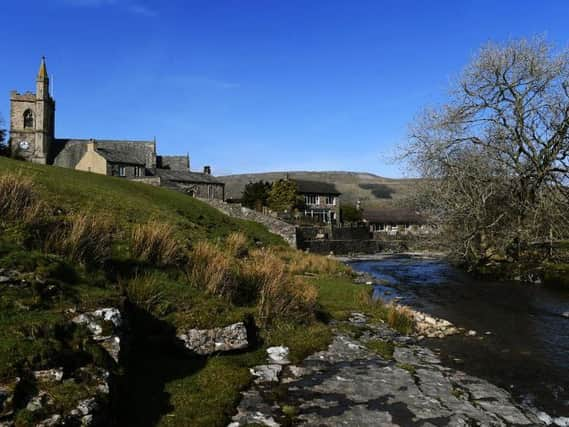The Yorkshire Dales' Gayle Beck homes a historic Wensleydale cotton mill on its banks


Among the many wonderful water features that can be found in the Yorkshire Dales, a smaller but nonetheless special example is on offer at Gayle Beck.
The beck flows through the Wensleydale hamlet of Gayle, near Hawes, and can be seen from the roadside as well as the nearby bridge.
Advertisement
Hide AdAdvertisement
Hide AdOne of the most significant aspects of the beck, however, is the 18th century cotton mill which lies on its banks.
Gayle Mill dates back to 1784, and is owned by Newcastle-based charity North of England Civic Trust and was leased to Gayle Mill Trust, who ran it as a visitor attraction until they were asked to vacate the site when extensive structural defects – including a leaking roof – forced it to close for remedial work.
There were rumours that the Grade II-listed building was to be sold for conversion into housing, but the trust stated in November last year that that was never the case – and that they had been unable to make any public comment on the mill’s future until a £59,000 emergency grant was confirmed and a legal process resolved.
The money was to be spent on repairing the roof, which was damaged by vegetation, ahead of plans that it would reopen around the time of Easter this year.
Advertisement
Hide AdAdvertisement
Hide AdThe 18th-century cotton mill appeared in the BBC series Restoration in 2004, placing third in the national final, and also featured on Guy Martin’s How Britain Worked series for Channel Four in 2012.
Gayle Mill was originally a water-powered cotton mill, before later being converted into a sawmill.
Between 1919 and 1948, its turbines supplied the entire village of Gayle with electricity.
It closed in 1988, and looked set to be converted into flats before funding secured its preservation and it opened to the public in 2008.
Advertisement
Hide AdAdvertisement
Hide AdLike much of the Yorkshire Dales, farming and tourism stand out as two main sources of industry in the village.
The area has a number of campsites and bed-and-breakfasts, which will be able to open again soon.
Technical details: Nikon D5 camera, 24-70mm lens, 1/400th second at f8, ISO 100.
Comment Guidelines
National World encourages reader discussion on our stories. User feedback, insights and back-and-forth exchanges add a rich layer of context to reporting. Please review our Community Guidelines before commenting.